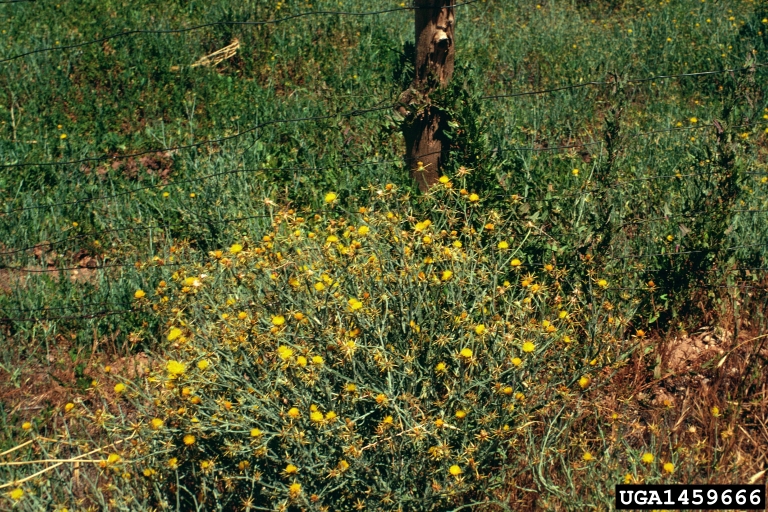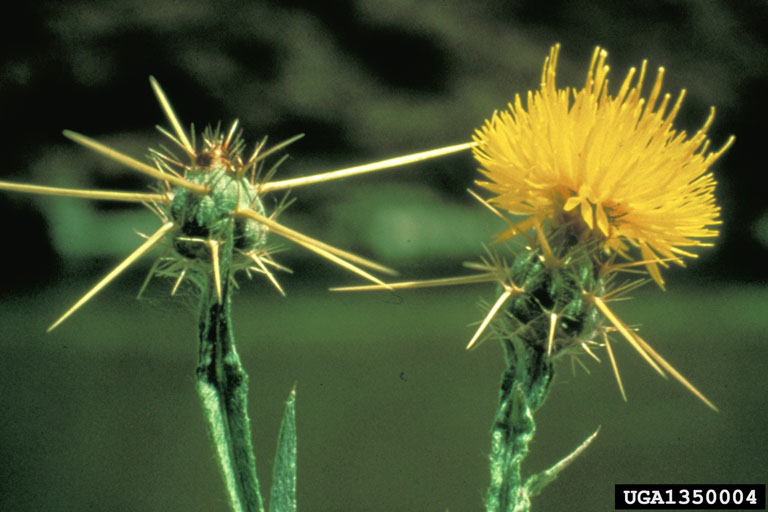Yellow Starthistle

Yellow Starthistle
(Centaurea solstitialis)
Priority: - Prevent / EDRR
Tags: Agricultural | Toxic | EDRR
Identification and Reproduction
Identification:
- Yellow starthistle is in the Asteraceae family and is a long-lived winter annual
- Stems are erect, rough, branching and can grow up to 1 m in height. Sometimes it can grow in clusters that appear shrubby.
- It is much like other knapweeds and will form a rosette in its first year of growth. After bolting the lower stem will appear wooly and grey.
- Lower leaves are deeply lobed while upper leaves are toothless and sharply pointed.
- This plant produces bright yellow flowerheads that are found at the end of stems. They are distinct with sharp straw-coloured thorns that can reach 2 cm long.
Reproduction:
- Yellow starthistle reproduces by seeds which are easily dispersed.
- Seeds are known to spread through hay and vehicles.
Habitat & Ecology
- They prefer dry sites that are fully exposed or have a south facing aspect.
- It is also commonly found on rocky, shallow soils.
- Taproots extend well below the ground to tap into undergrown water resources.
- Considered a pioneer species, taking over recently disturbed sites.
- Yellow starthistle has been observed in Alberta, British Columbia, Ontario and Saskatchewan but populations have been eradicated.
Impacts
Social:
- This aggressive plant is out-competing foraging plants and reducing rangeland values.
- It is toxic to horses and if consumed can cause "chewing disease" in horses. It contains a toxin that can disrupts the nervous system and brain, restricting eating and drinking of horses.
- Can contaminate alfalfa and grain crops.
Ecological:
- Invades environments and can reduce biodiversity and wildlife habitat.
- Can exhibit allelopathic effects on native species.
Management
Prevention is a high priority for this plant.
- Use clean and certified grain, hay, straw and seed mixtures.
- Clean equipment, machines and vehicles of any soil or plant parts before leaving a work site.
- Contact the Canadian Food Inspection Agency (CFIA) if you think you have seen this plant.
Resources
Download A Guide to Weeds in British Columbia on Yellow Starthistle here.
For more details check out the Invasive Species Compendium datasheet on Centaurea solstitialis (yellow starthistle).
Header photo (Matt Lavin).




